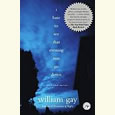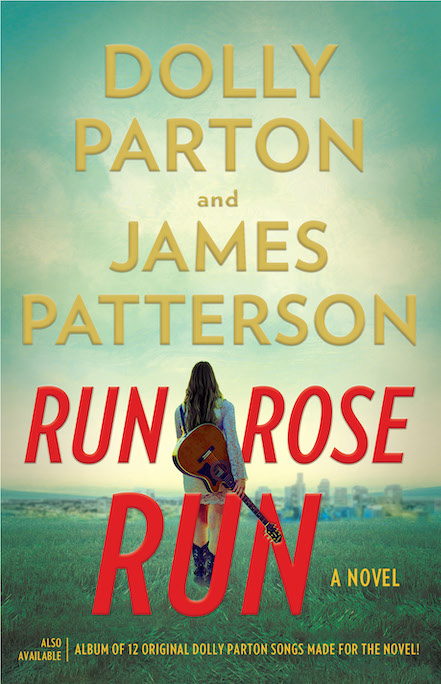Kicking and Punching and Straining for the Sky
Jim Ridley—Nashville Scene editor and passionate champion of literature—died on Friday at age fifty
In 2008, the recession hit literature as hard as it hit manufacturing. Bookstores around the state were closing, newspapers were shuttering their book pages, and authors couldn’t land a book deal that would cover a single month’s rent, much less their living expenses during the time it takes to write an entire novel.
 I was editing the Nashville Scene’s book section in those days, and I figured the ax would fall on my neck soon enough. Standing in line at Target on New Year’s Day 2009, I finally got the call: the Scene would no longer need a book-page editor because the Scene would no longer cover books.
I was editing the Nashville Scene’s book section in those days, and I figured the ax would fall on my neck soon enough. Standing in line at Target on New Year’s Day 2009, I finally got the call: the Scene would no longer need a book-page editor because the Scene would no longer cover books.
A lot of things happened in the next few months. The staff at Humanities Tennessee, alarmed by what the loss of book coverage in state newspapers would mean for local writers, launched Chapter 16 to fill the void. And SouthComm, a local media company, bought the Scene from the national syndicate that owned it. One of the first things SouthComm did was install Jim Ridley as editor. And one of the first things Jim did as editor was reinstate the Scene’s book page by partnering with Chapter 16. The arrangement was a win for everyone: it gave the paper a cost-free way to publish book news, Chapter 16 a cost-free way to reach a larger audience, and Nashville readers a cost-free way to find out about local books. But it took a visionary like Jim to recognize the potential in such an unconventional plan.
I’ve never met anyone who loved books more than Jim loved books, though most Scene readers knew him not from his exhaustive knowledge of literature but from the literally thousands of film reviews and critics’ picks he wrote for the alternative newsweekly going back to 1989. As a reviewer, his wit and insight and verbal pyrotechnics were unparalleled, but he never acknowledged his own talent—he may not even have been aware of it. In 1996, on the day I met him at my first Scene event, I told him he made The New Yorker’s Anthony Lane look like an amateur from the farthest reaches of the provinces. First Jim laughed, and then he turned the whole conversation into an extravagant explanation of how lucky the Scene was to have me on board. Jim had the kind of linguistic gifts that defy mortal explanation, but one of the most amazing was his ability to turn a compliment into a mirror: any light that shined his way was light he immediately deflected, and in deflecting somehow magnified.
Even before he moved to the Scene’s corner office, he was much more than a film reviewer. Search his name at the paper’s site and you’ll find his byline on food reviews, music reviews, theater reviews, even art and architecture stories. A cursory glance at his book reviews is all it takes to realize he truly didn’t need Chapter 16; with a few more hours in the day, he could have filled out the entire book section on his own.
Here’s his take on Adam Ross’s debut novel, Mr. Peanut: “Trapped by their own fundamental inability to understand the women they love, too diverted by their own dissatisfaction to realize how much they love those women, Ross’s three male protagonists essentially become avatars in the video games of their wedded lives—empty figures performing the same mundane rituals over and over, mystified why the outcome never changes.” And here he is on Hamlet: “The word ‘play’—like the wordplay—carries devious multiple meanings in Shakespeare’s Denmark: to perform, to trick, to wear a false face that disguises true intent. These divided meanings typify the spirit of the play. In Hamlet’s paradoxical world, fiction has the power to unmask, to conceal, or even to kill; to act means either to make a decisive move or to hide one’s grisly deeds and intentions—sometimes both at once.”
Jim could write knowledgeably on any subject for a simple reason: he was curious about everything. He listened to everything. He watched everything. Above all, he read everything. Never much for texting or even email, he preferred to settle questions in person or by phone, if possible, and in our Friday-afternoon conferences about the next week’s book coverage, I would run down a list of our Nashville-specific stories. I never had to explain who anyone was, whether the writer was a local novelist, poet, children’s-book author, or scholar. Jim always knew their names—often he knew them personally.
In fact, he loved everything about the world of writers. He loved libraries. He loved university creative-writing programs. He loved bookstores, new and used. He especially loved the Southern Festival of Books, and his introduction to the Scene’s coverage of it was something I looked forward to all year long. He would go through the schedule day by day, pointing out the reasons readers shouldn’t miss anything, even if they had to duck out of one session early to make it to another that was scheduled at the same time.
 These lavish overviews often ran to more than 4,000 words—you can find examples here and here—but they were so lively and fresh and funny that reading one was like reading a work of literary art in its own right. At the festival itself, Jim was in heaven. So many people came up for one of his famous bear hugs that I often wondered how he made it to any actual sessions. And if he ever had to miss a day of the festival himself, he always called me—just to see how things were going, to find out if any authors had misbehaved in an entertaining way, and to confirm that readers were showing up in the droves he expected.
These lavish overviews often ran to more than 4,000 words—you can find examples here and here—but they were so lively and fresh and funny that reading one was like reading a work of literary art in its own right. At the festival itself, Jim was in heaven. So many people came up for one of his famous bear hugs that I often wondered how he made it to any actual sessions. And if he ever had to miss a day of the festival himself, he always called me—just to see how things were going, to find out if any authors had misbehaved in an entertaining way, and to confirm that readers were showing up in the droves he expected.
Jim Ridley’s love for Middle Tennessee, especially the arts in Middle Tennessee, was innate, lifelong, and absolutely unwavering. Over the years, a great many writers who got started at the Scene moved on to national outlets, and they always tried to take Jim, or at least his work, with them. Noel Murray, who now writes for the likes of The Los Angeles Times and Rolling Stone, began his career as a film critic under Jim’s mentorship. “I always wanted to return the favor he did for me and help him reach the wider national audience he richly deserves,” Murray wrote in a recent blog post. “[H]e’s always said that he prefers to stay local, writing for and editing the same paper he’d worked for since his early 20s.”
Scene classical-music critic John Pitcher put it more simply in a comment on the Scene obituary: “He could have done anything he wanted, anywhere in the world, and been a huge success at it. But if I may borrow a phrase from the movies, Jim decided to become the richest man in Bedford Falls instead.”
In 2014, he wrote a typically brilliant review of Bruce Springsteen’s Nashville arena show:
Time throws you off a rooftop the day you’re born, and the fall you have to the pavement is called a life. The Springsteens of the world are there to remind us the object is to never stop kicking and punching and straining for the sky, all the way to the inevitable finish. You can complain Bruce Springsteen mugs too much, indulges too many little kids and weepy middle-aged moms, does too many of the same things again and again. You know who else you can make that complaint about? The people who inspire the most love from you—the people who have demonstrated their resilience, and their willingness to be there for you even when it’s not convenient, and who have lifted their chin to face the hard times we know will eventually have to come.
With Jim’s untimely and unfathomable death, hard times have come to the city of Nashville—harder times than the irremediably humble Jim Ridley would ever have acknowledged. In truth, it’s impossible to imagine how any arts community in this town can survive without him here to champion it, to prod it into becoming its best, to nurture every bit of growth it’s capable of. But we will survive. We owe it to Jim to keep kicking and punching and straining for the sky—because he taught us how to do it, and made us understand why we should.
Visitation with the Ridley family will be held from 9 to 11 a.m. on April 16, 2016, at First Baptist Church in Murfreesboro. A funeral service will follow. A GoFundMe account has been set up to help with medical and funeral expenses and to support Jim’s family.
To learn more about the life of Jim Ridley, be sure to read the obituaries in the Nashville Scene, WPLN, Tennessean, Murfreesboro Post, Indiewire, WSMV, RogerEbert.com, and Medium. Also additional coverage by the Scene here and here, and by WPLN.
For more updates on Tennessee writers, please visit Chapter 16‘s News & Notes page, here. To sign up for the free Chapter 16 weekly newsletter, click here.


